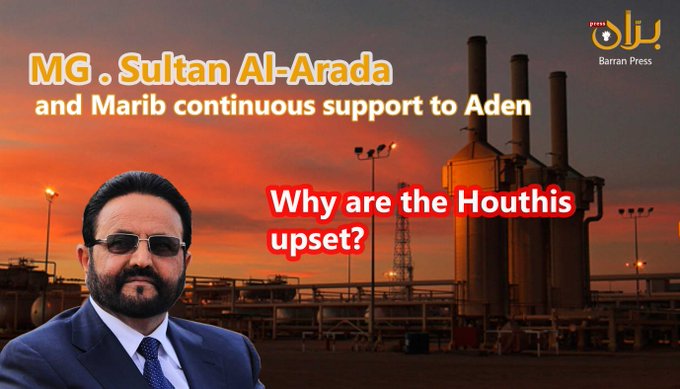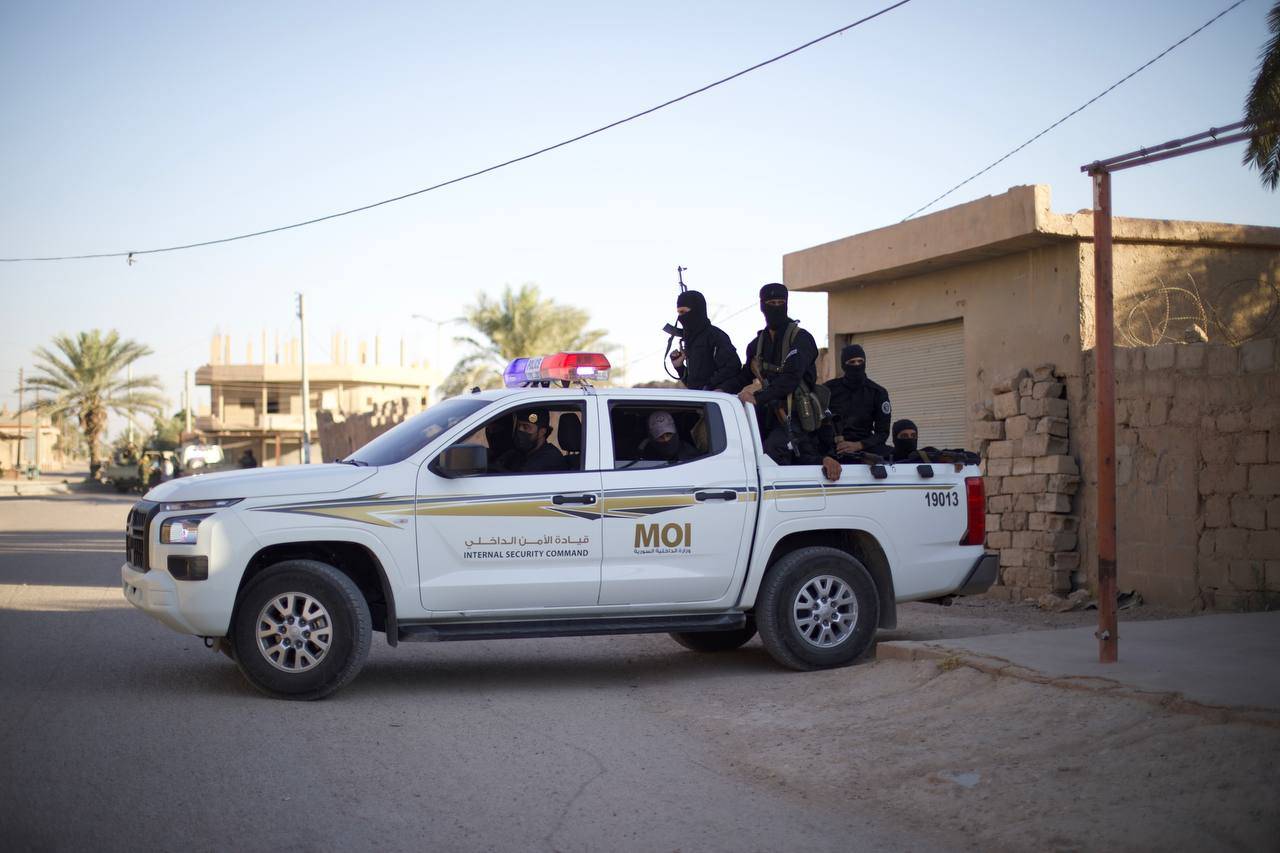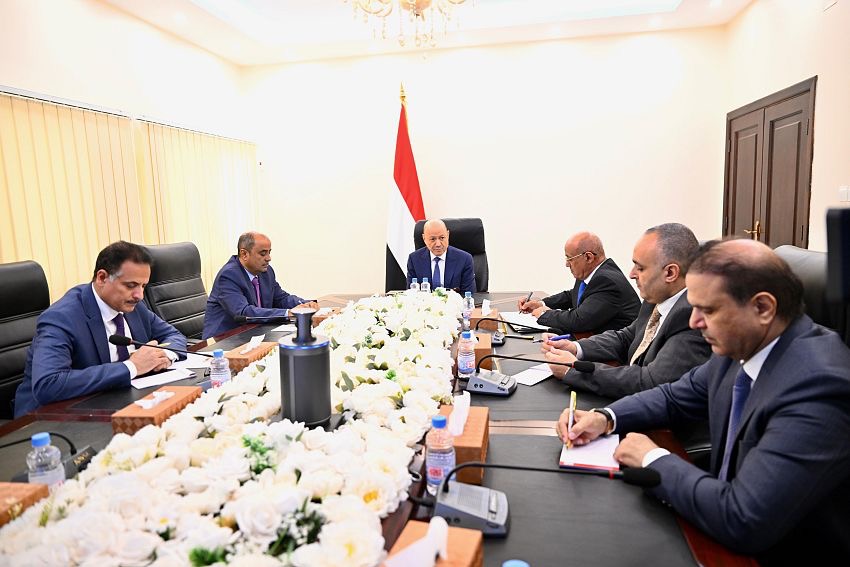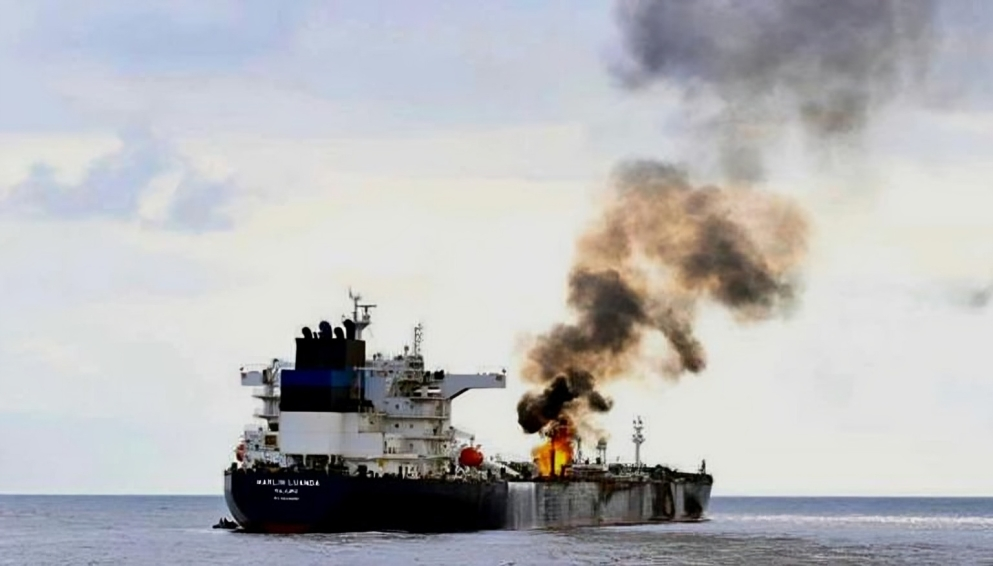
Barran Press
In a captivating conversation with journalists on May 6, 2024, Major General Sultan Al-Aradah, a prominent figure in Yemen's political landscape as a member of the Presidential Council and governor of Marib province, expressed his unwavering support for Aden, the so-called "temporary capital." Al-Aradah's remarks shed light on the collective effort to maintain stability in Aden, emphasizing Marib's contribution through fuel assistance to power stations. Interestingly, this support seems to provoke the Houthi rebels, a group internationally recognized as terrorists.
The Houthi group's reaction to Marib's support reveals their fear of a united front among factions supporting the Yemeni government's legitimacy. Major General Al-Aradah's statement underscores the significance of this cohesion, as it poses a significant threat to the Houthi rebels and their aspirations.
Moreover, Al-Aradah's remarks reflect his determination to address the multiple crises faced by Yemenis, including the dire electricity situation in Aden, which surpasses that of any other province. This commitment to finding solutions further highlights the motives behind the Houthi group's threats to target Marib's oil reserves, reminiscent of their previous attacks on oil-exporting ports in Shabwa and Hadramout provinces in 2022.
Amidst the escalating tensions, Hussein Al-Azzi, the outspoken Deputy Foreign Minister of the unrecognized Houthi group, denounced the distribution of Marib's oil, accusing Al-Aradah and the Islah Party of treating it as their personal property. Al-Azzi's controversial statements not only enraged the Houthis but also unveiled their greatest fear—the emergence of a stronger political alliance among Yemen's legitimate factions. Marib's pivotal role in supplying Aden and other "liberated" provinces with essential oil derivatives fosters unity and undermines the Houthi group's plans.
In response to Al-Azzi's provocations, activists highlighted Sultan Al-Aradah's comments to counter the Houthi narrative. Fathi bin Lazraq, the publisher of Aden Al-Ghad newspaper, drew attention to the significant reliance on Marib's oil. He revealed that since the operation of the Al-Masila power station in Aden, fueled by crude oil sourced from Marib, approximately 3,000 barrels have been consumed. However, the government's attempts to secure an additional supply of 1,000 barrels from the Governor of Hadramout have been consistently rejected, despite the availability of a reserve consisting of 3 million barrels.
According to a letter from the Yemeni Oil Company addressed to the Minister of Oil, Marib's daily oil supply to the Aden power station reaches 9,000 barrels. In August 2023, the Marib Oil Company informed the Minister of Oil that the pumping of crude oil to operate the power station had resumed. They stated that between August 7, 2021, and October 29, 2022, a total of 745,955 barrels had been transported from Sector 18 in Marib to the Aden power station through the Safir pipeline.
As tensions persist and the Houthi rebels continue their threats, Major General Sultan Al-Aradah's support for Aden from Marib takes on a critical role in the ongoing struggle for stability and unity in Yemen.





